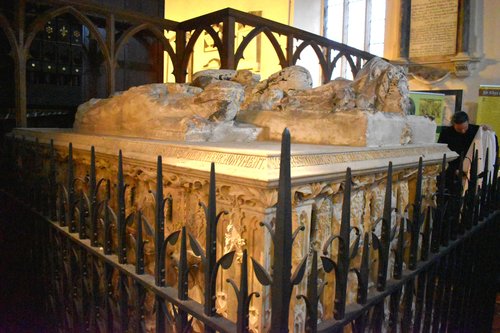The Welsh Kingmaker
Richard Davies charts the life and times of Sir Rhys ap Thomas
The fifteenth century was a tumultuous time in the history of England and Wales as both wings of the Royal Family sought to defeat their cousins in order to become King of England during what was known as the War of the Roses. One person in particular is remembered for his key role in helping Edward IV ascend to the throne and assisting the reinstatement of Henry VI. This individual was Richard Neville, Earl of Warwick, who is known in history as Warwick the Kingmaker.
But did Wales have its own Kingmaker during this period? According to some, it did, and the name of this person was Sir Rhys ap Thomas who played a key role in Henry Tudor's victory over Richard III at the Battle of Bosworth. This year we commemorate the five 500th anniversary of Rhys' death.
What do we know about him? He came from a line of Carmarthenshire gentry and his lineage stretched back to Ednyfed Fychan and the Princes of Dinefwr. Although the family had sided with the Lancastrians, Rhys had not supported the Buckingham Rebellion, and was therefore rewarded by Richard III. However, he is believed to have kept in touch with Lady Margaret Beaufort, Henry Tudor's mother and an enemy of Richard III.

According to tradition, Rhys promised Richard that Henry Tudor would only pass through south-west Wales “over his belly”. So, when Henry landed at Dale in 1485, in order to keep his promise, Rhys was forced to lie down under Mullock Bridge while Henry marched over it! Is this merely a myth? Who knows?
However, we do know that Rhys marched through mid Wales and recruited around 500 soldiers for Henry's army, joining him in the Welshpool area. Was it Sir Rhys who killed Richard III at the Battle of Bosworth? The words of the poet Guto'r Glyn suggest that Rhys may have been responsible: “Lladd y blaedd, eilliodd ei ben”. (“Killed the wolf, shaved his head”).
Rhys was generously rewarded by Henry VII. He was knighted immediately, and when Rhys was made a Knight of the Garter he held a huge tournament at Carew Castle – the last of its kind in Britain according to some people.
When Rhys died in 1525, he was buried at Carmarthen Priory. But when the days of the Priory came to an end, Rhys was buried at St Peter's Church, Carmarthen, where his tomb remains to this day.